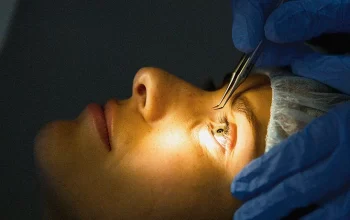If you are a person who suffers from a chronic illness, you may be interested in learning about the effectiveness of alternative medicine treatments. While the main goal of conventional medical treatments is to cure the disease, many people use alternative treatments for a variety of reasons. Some of these include higher levels of education, dissatisfaction with conventional medicine, or the desire to improve the body’s own healing abilities.
Higher levels of education
If you are lucky enough to attend a medical school in the United Kingdom you will be rewarded with some of the finest education that the country has to offer. As you might imagine, there is a lot of cross fertilization and peer pressure among students and faculty alike. That said, the medical school is a very safe place to be if you are a student of the human body. So you should be on your game if you are. This is all the more reason to get your medical juicier on the right foot. The best way to do this is to engage in the correct kind of dialogue.
Dissatisfaction with conventional medicine
People are dissatisfied with conventional medical care. However, research has yet to uncover any concrete relationship between the level of dissatisfaction with conventional medicine and the effectiveness of alternative medicine treatments. This study attempts to answer that question.
Using a survey, researchers compared people who used unconventional forms of health care with those who didn’t. The participants were randomly selected from the United States. They answered questions regarding their experiences with conventional medicine and their world view.
Alternative medicine users were found to have more holistic health beliefs. In addition, they were more likely to have experienced a transformational health experience. These results suggest that a subset of individuals may be attracted to nontraditional forms of therapy.
Personal factors underlying a person’s decision to use alternative medicine
There is a wide variety of factors that could influence a person’s decision to use alternative medicine. For example, they may have poor health or be dissatisfied with conventional medical care. They may also be attracted to the philosophical and spiritual aspects of the practice. In addition, they might be influenced by the influence of others.
To study the decision to use alternative medicine, a survey was conducted. The respondents were asked to answer a series of questions regarding their experiences with conventional medicine and their beliefs about health. The responses were compared to census data from the same period.
Overall, the survey results contributed to our understanding of alternative health care practices. It helped us to identify factors that could lead people to use alternative therapies.
Ayurveda
Ayurveda is a holistic system of medicine which has been used for thousands of years in India. It emphasizes the use of herbs and diet to promote health and wellness.
Ayurveda focuses on preventing and reversing disease. It uses herbal medicines and physical therapy to help the body heal itself. This approach may include massage therapy, meditation, and cleansing the body.
Ayurveda is considered to be the oldest form of medicine in the world. There is evidence that suggests it can lower blood pressure and reduce cholesterol. However, it is not regulated as a drug.
Ayurvedic medicine has been known to reduce inflammation. Irregular sleep patterns and inadequate diet can increase the risk of inflammation.
Naturopathy
Naturopathy is a health care system that emphasizes natural remedies. It incorporates a wide range of therapies, including vitamins, herbal remedies, bodywork, acupuncture, and exercise.
It is a holistic approach to treatment that may be especially effective for patients suffering from chronic diseases. In addition to assessing risk factors, naturopaths will make suggestions to help support good health.
Naturopaths are licensed in most states. You can verify this by calling your state’s licensing board. Some insurance companies cover naturopathic care. However, you should still inform your regular health care provider about all your treatments, including naturopathic therapy.
There are many practices associated with naturopathy that date back to centuries. Some examples include massage, chelation therapy, deep breathing techniques, herbal medicine, tissue salts, and tai chi.
Reiki
Reiki is an alternative medicine treatment that uses the power of touch to promote healing. It is believed to improve emotional and physical health.
Reiki is administered through light touch on the body. The practitioner will place their hands over various parts of the body, using a variety of movements to activate the parasympathetic nervous system, which regulates blood pressure, digestion, breathing, and other processes.
Reiki has been studied for a wide range of health conditions. Studies have looked at its ability to lower stress, relieve pain, and increase sleep quality. Some health professionals suggest that it may also reduce anxiety and depression.




